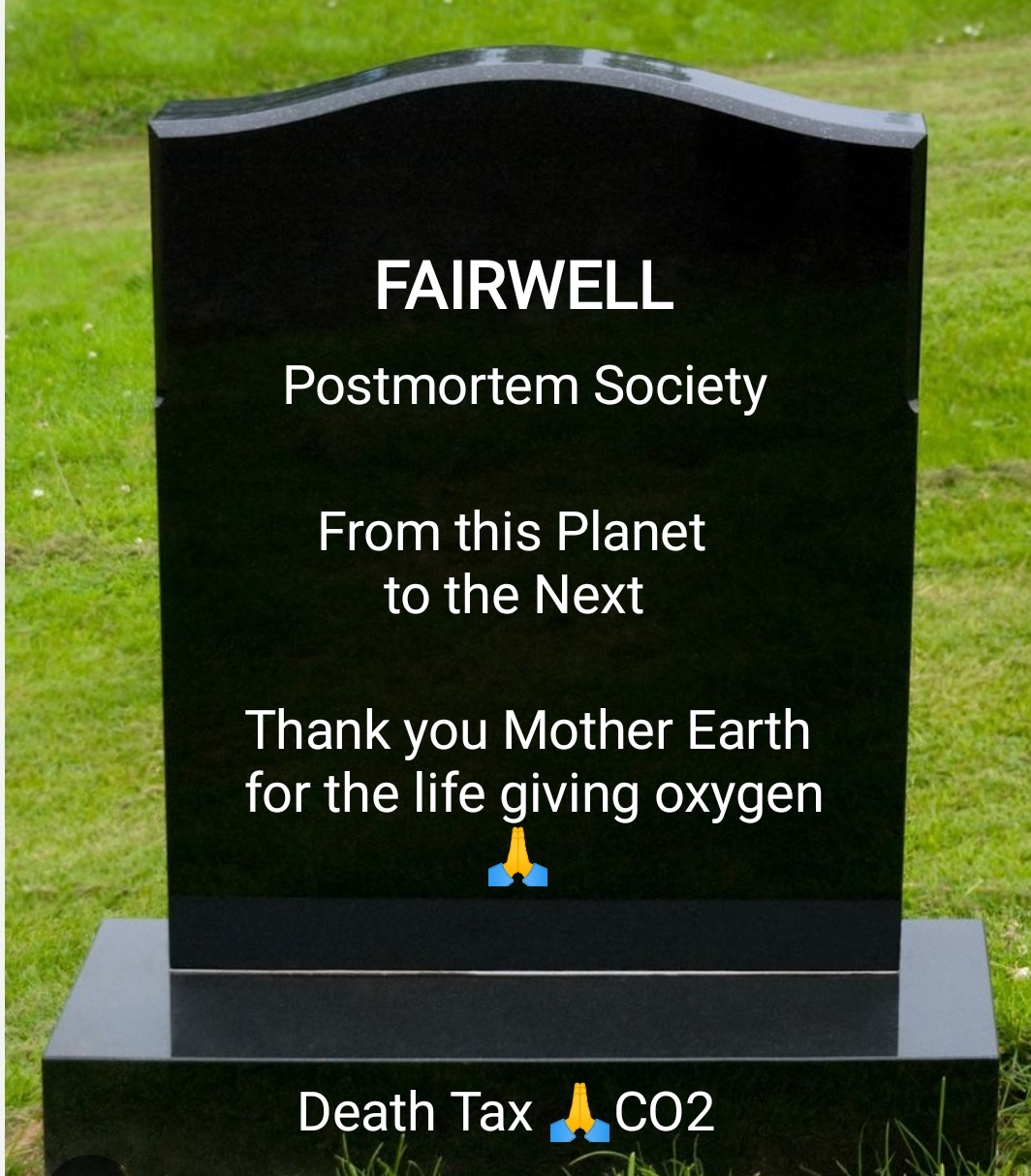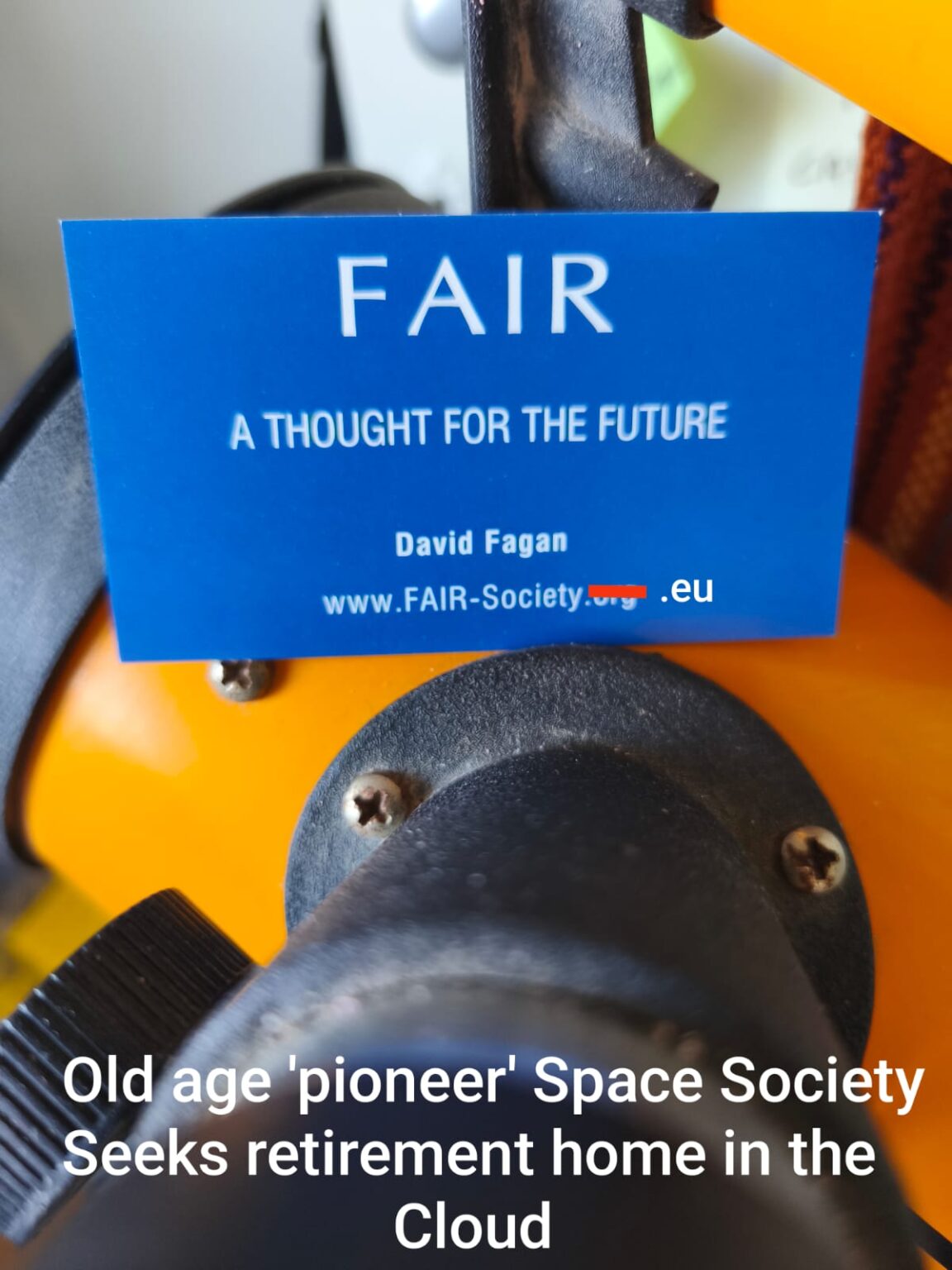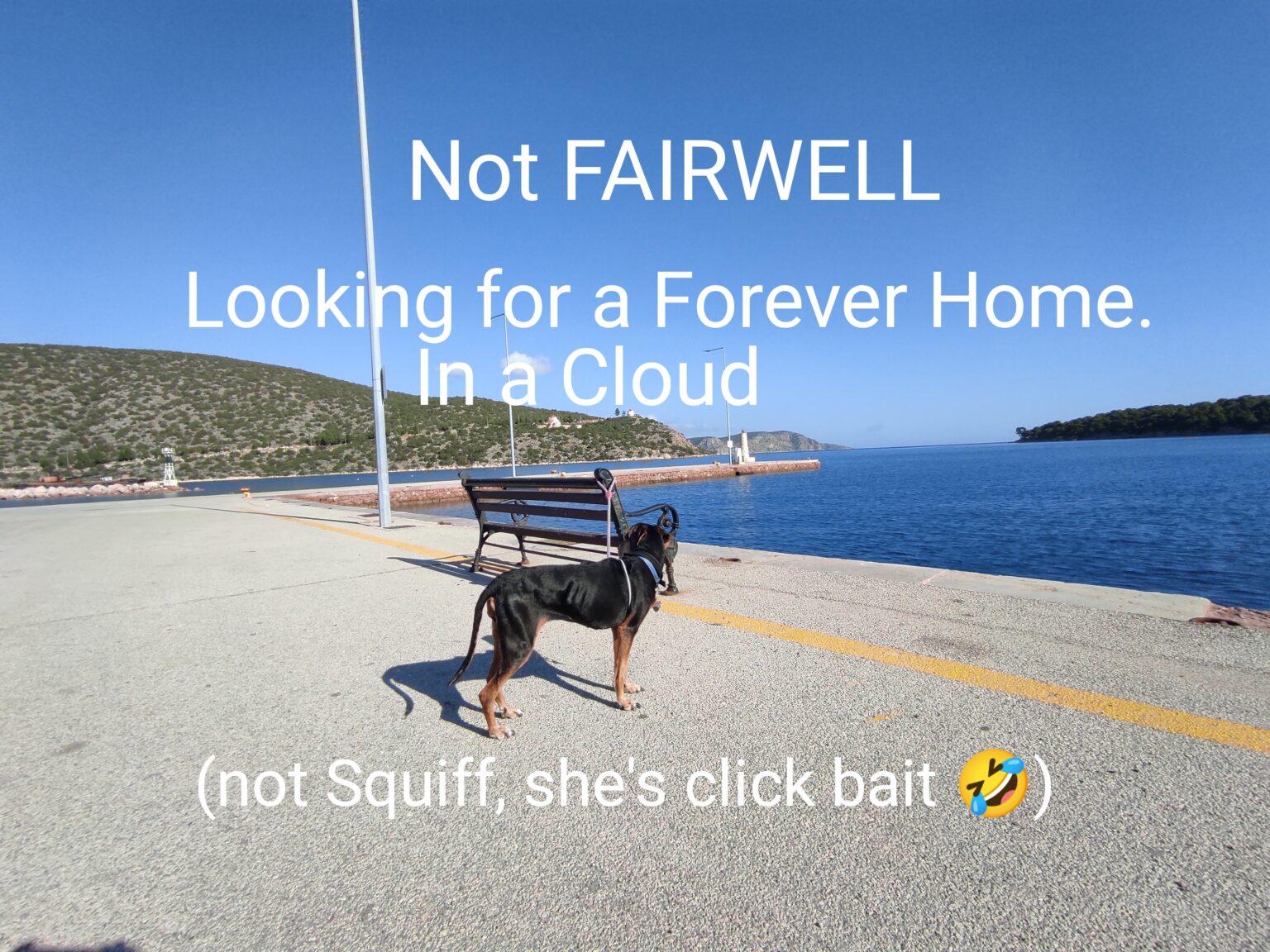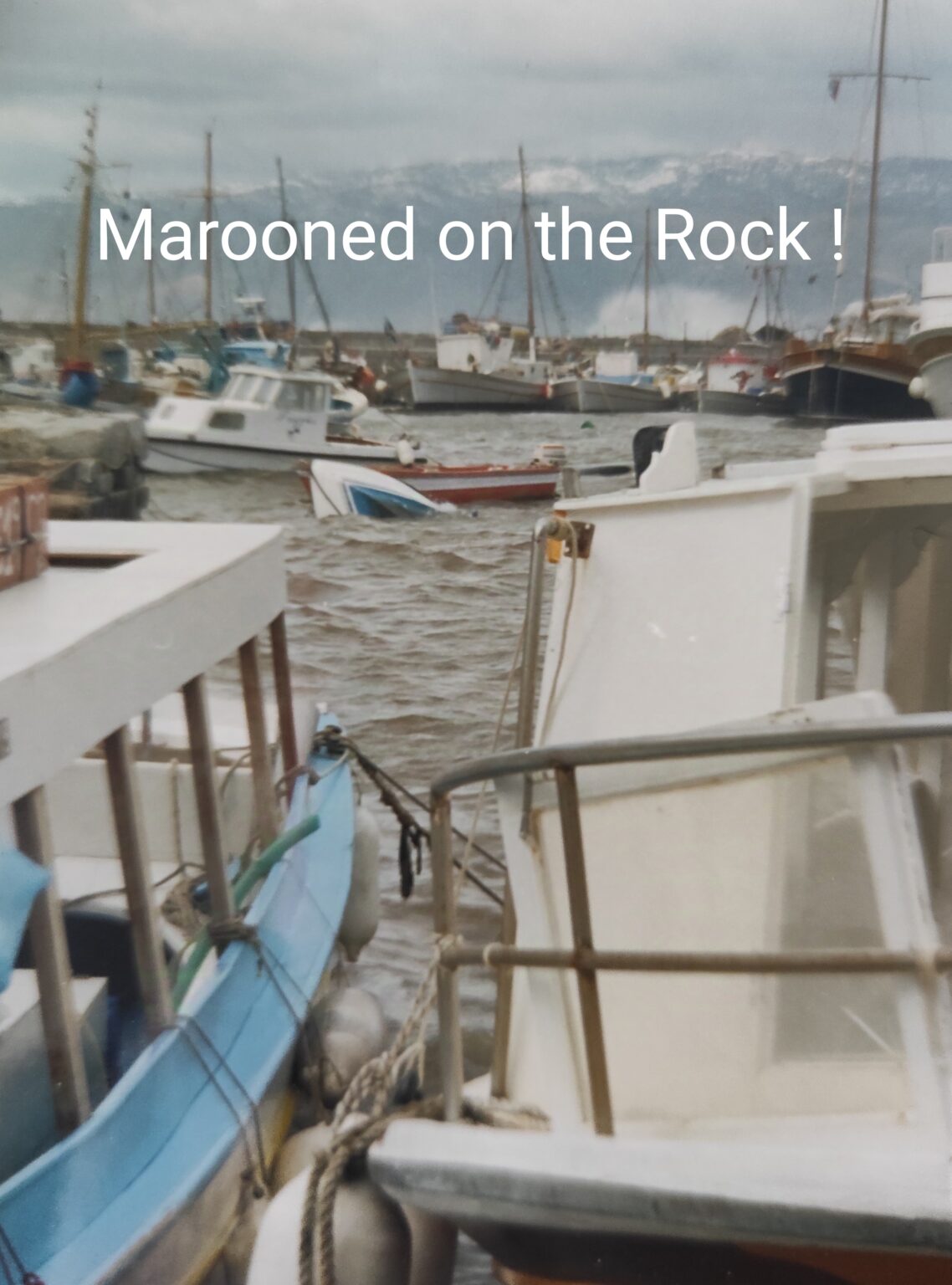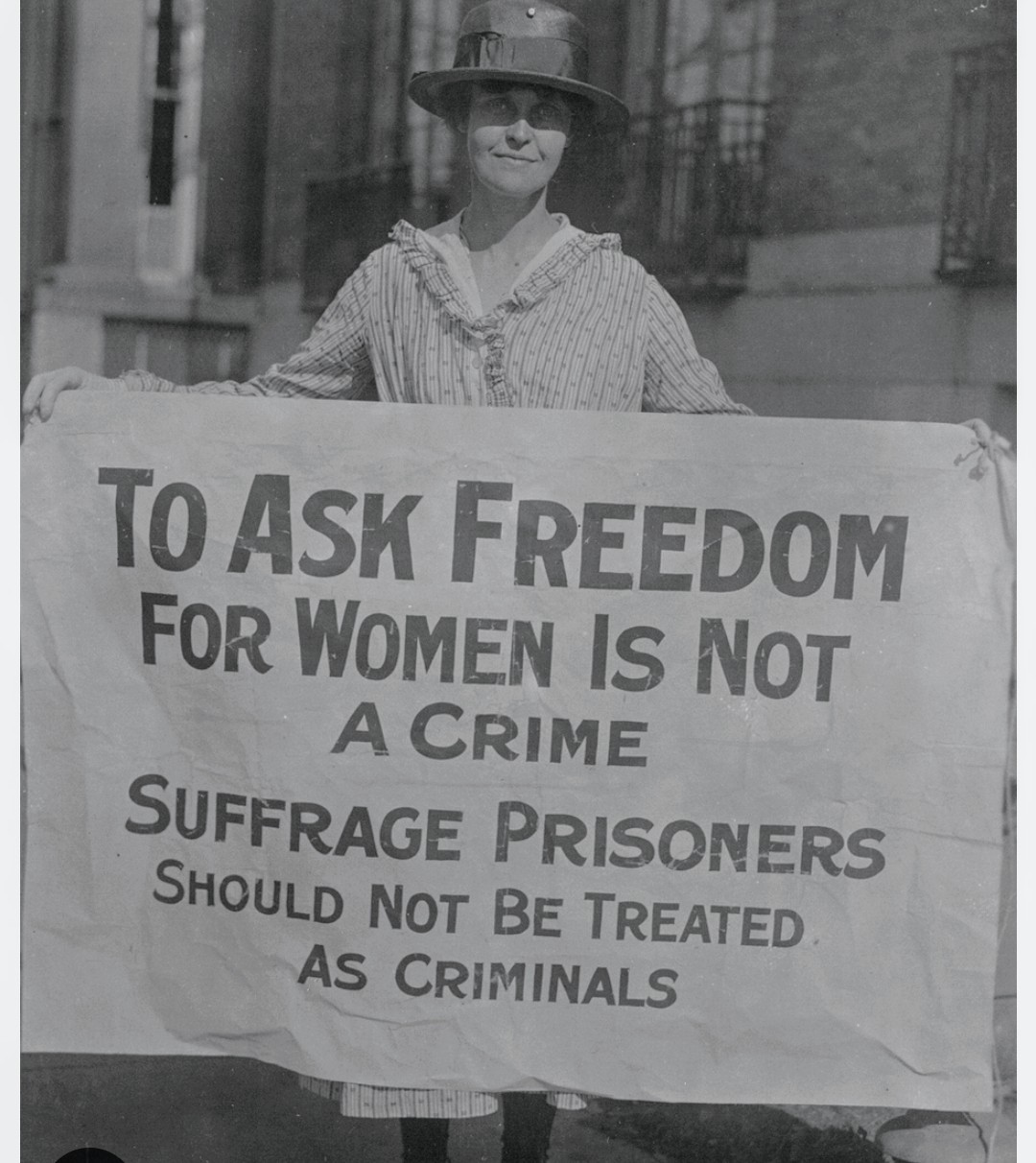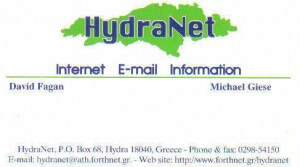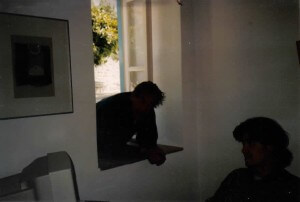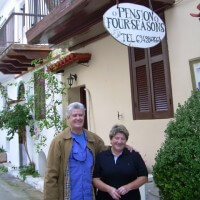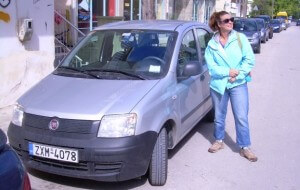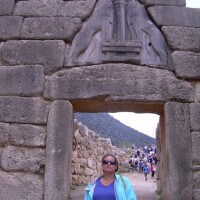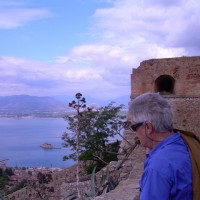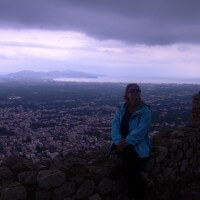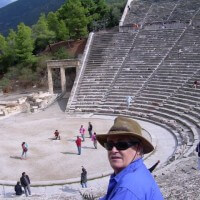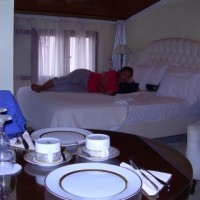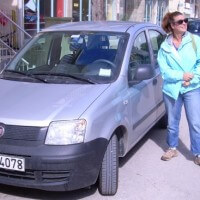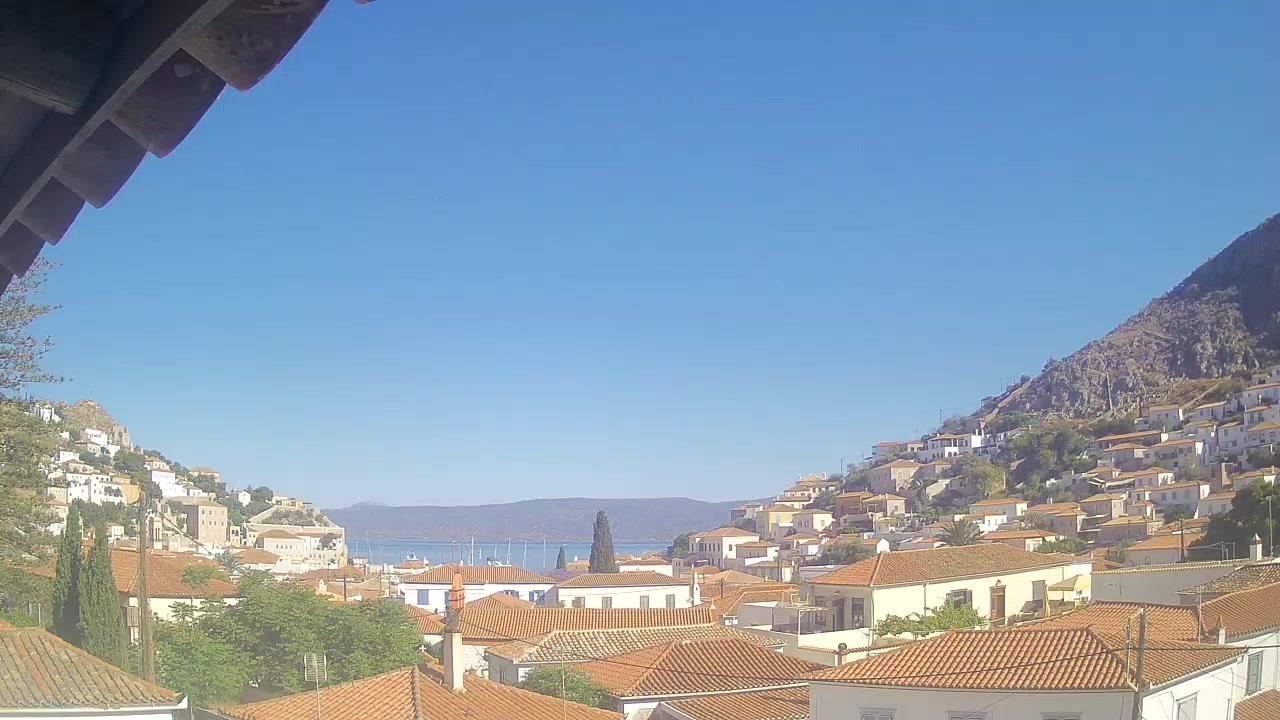Welcome to our new format.
While there is still a learning-curve in progress, we hope you will enjoy our latest endeavors. It was noted that the Comet hasn’t been as active of late; some thought that perhaps enthusiasm had waned.
We intend to rectify this impression henceforth with weekly photos, more frequent inside news and images, and most probably an alternative slant to the rumors and rhubarbs. And we’ve added the ability for visitors to participate with their own muses and mutters.
Above all this is for fun; there is no hidden commercial agenda to the Comet. We like to share with those few who appreciate the outer/lighter side of Hydra. This is not an enticement in disguise; we will deliberately ungloss life in our valley. We like it as it is—too far off the norm for anything the ‘real-world’ should perceive as a real destination, other than a short visit. We do support commercial developmen—on other islands.
Happy Memories
“E-mail? Internet? What a gimmick! We have fax machines! What more does one need?” This not from a local but an ex-patriot who spent a substantial part of the year living abroad in the first world. And as recently as 1996, a time on the island when the drachma was an almost nonexchangeable currency and the euro a coin not yet on the horizon.
I was not to be deterred, insisting that one day in the not-too-distant future, e-mail and the Internet would effect a global communications revolution. I had this idea of opening the first cybercafé and website about the Rock. Much like the old telegraph office used to be. The only two people at the time who were able to share this vision were our mayor, Kostas Anastopoulou, and a semiretired Swedish friend who had come to live on the island, Michael Giese.
When we launched the Hydranet website, it was bigger than all the cyberspace occupied by Crete and Corfu combined. As joint lunatics, appreciated by the one-off tourist and a paltry few who knew of other folk with an @ address, we had a lot of fun braving the huge learning curve of a new technology. Only in 1997, after a house was sold as a result of communications via our system, were we even taken seriously.
Recently a regular Comet visitor pointed out that our cheerful little website was becoming something of an obituary list. So we chose not to introduce Michael’s passing as a simple MIA name but to highlight a bit of his and our pioneering experience on the island. My partner in crime passed suddenly in his home, Uppsala, Sweden, on October 26. He will be much missed by all who knew him.
Be Advised! Metro Muggers Rampant!
It seems that every week one of the island’s inhabitants who has been into the Big Olive—in fact all type of visitors to the Rock—has a harrowing story to tell of being robbed on the Athenian public transport system. Most commonly, they report being mugged on the fabled attractive new metro—one of the crowning architectural achievements for the 2004 Olympics.
By the sound of it, deft pickpockets work in gangs to relieve innocent tourists of wallets, handbags, i-phones (any phones/cameras for that matter). In some cases laptops are snatched, and apparently the swag is immediately passed onto other fleet-footed fellow thugs, who disappear into throngs or scurry up stairwells, never to be seen again.
One would think this rife invasion of travellers would encourage some sort of major security clamp down. Things like CCTV would be installed more prolifically (and manned); maybe a few burly plainclothes cops would be allowed free passage. These are the sorts of measures other capital cities have employed with fair success. Letters to local newspapers seem to be ignored, and the general answer is an apathetic shrug and “tea-nah-khan-amay” response of ‘what can we do,’ and it has been going on for years now.
Well, what we all can do—apart from suggesting commuters arm themselves with Tazer guns or stand with mace in hand—is advise our visitors to stay away from public transport or, if one does need frugal connections, to be very alert and make sure all valuables are tucked tight, zipped, and locked.
Sad times for a city once renowned for its honesty and friendly welcoming atmosphere.
October 12, 2010 Kathimerini Update:
Mugging ring
Twenty-two suspected members of a mugging and car theft ring believed to have targeted dozens of people in central Athens were in police custody yesterday. Officers from the Aghios Panteleimonas and Kolonos police precincts worked together to arrest the suspects, 16 Algerians and six Afghans, on Sunday. The suspects are believed to have carried out 35 muggings and 45 car thefts over the past six months. The muggings targeted women who were stripped of purses and jewelry. Police found large quantities of jewelry, cell phones, purses and watches in raids on two apartments in central Athens.
Parole to Ancient Greece
Much as we love our village, for the sake of sanity, it is necessary to escape the Rock now and again. Even folk on an extended holiday here may ask us for an alternative idea. We discovered a grand and comparatively inexpensive change of scene. Pop on a Hydrofoil over to Ermioni, rent a little car, and drive up to Nafplion, about a two hour scenic meander through the Pelleponses. We found a quaint little pension in the old town and made that our base. An easy walk into the romantic old part of this historic port, which sports numerous tavernas cafes and cottage industry type shops.
From there we would take daily road trips off to the must-see-sights of ancient Greece. Epidavros, Mycnea, Larrisa, the area is rich in things to do and see, and all within and hour or two by car. They say a change is as good as a holiday, while we were delighted to get home, the break was awesome. Old Greece, is hospitable, gentler on the wallet and quite stunning.
- Mycnea a place of legend
- Tourist at work
- Larissa Castle, Argos simply stunning views.
- Unbelievable acoustics, a coin drop can be heard from anywhere
- Georgia spoiled us with the most scrumptious breakfast.
- After a hard day at the ruins.
- Our chariot from Pop’s car rental, Hermione, at Hellenic Seaways office
Nautical Greek Tragedy: The Rest of the Story
Silly Season 2010

Port of Hydra, crowded since time immemorial.
Perhaps because we have lived here too long, or maybe because we just know the island and locals too well, intelligence concerning last week’s tragic nautical event involving the sinking of a passenger ferry, crushed by a monstrous cruise yacht in the main port of Hydra, was greeted with a grain of sea salt in our village.
Freedom II heading into Hydra Harbor.
Within minutes of the drama’s unfolding in the big city, the tom-toms (these days, text messages) had informed us of the excitement occurring in the island’s main harbour. Before we sound too sceptical or cynical in our reporting “the rest of the story,” the Comet wishes to add, had anyone been hurt or made to suffer financial ruin, in no way would we take a lighthearted approach to the story. On the contrary, our sources have revealed that all’s well that end’s well.*

Cruise yacht Bilmar.
Highlights from the initial murmurrings suggested that passengers’ lives were in danger, some near-drownings had been witnessed, and one of the island’s largest mainland transportation boats, the Freedom II, was sinking amidst scenes of pandemonium. Indeed, crew of the offending craft—a huge, privately owned luxury cruise yacht named the Bilmar—were nonchalantly ignoring the plight they had caused, and a poor Hydra family was about to be destitute, probably left to starve, their dreams sinking before their eyes, while fat-cat guests aboard the floating palace sipped exotic cocktails, pretended not to notice the panic on the harbour quay.
Various and sundry ships crowded into the Port on an average summer day.
Happily, the on-land reality and postcatastrophe facts are a little more in line with what we expected at the outset. Let’s be quite straightforward: given the amount of sea tonnage in shipping terms, as well as the number of yachts, passenger ferries, hydrofoils, catamarans, fishing boats, cargo boats—in fact just about every type of floating vehicle with the possible exception of aircraft carriers—frequenting the little port, it is in fact surprising to most, and a tribute to the seafarers, that so few accidents occur in the high-season confines of Hydra harbour.
Two boats aiming for the narrow harbor outlet.
As with any excessively busy intersection, the odd fender bender is ultimately inevitable. In this case perhaps the harbour master should have discouraged the Bilmar from entering the harbor, especially as the sea was choppy due to wind on the July 16. Apparently the cruiser, in trying to manoeuvre back out, drifted against the Freedom water bus, puncturing the hull in two places just below the waterline.

Ships have been navigating that passage, generally without incident, for centuries.
Indeed, instant rescue operations erupted the moment the incident occurred. Savvy Hydriot sailors rallied to the floundering boat’s aid and managed to save the Freedom II from going under with the ingenious use of floating barrels and help of a local building crane. With hindsight, some locals even suggested that as the insurance and instant offer of remuneration from the yacht owner himself were going to cover all damages; they should have let the boat sink. As it is, Freedom II is in the repair shop and expected to be up and running in a couple of weeks, complete with refurbished engines and equipment.

Many lives were saved.
The only rumour still afloat surrounding the incident is the possible reposting of a certain harbour chief, perhaps to a very small and distant port. This said because he had not behaved, at the time of the accident, in a courteous manner. A pistol was nearly unholstered during a postcollision argument with a local captain. This, of course, is also only hearsay, but like all rhubarbs on the island, where there is smoke on the water, there quite possibly a sinking ciaqui.

<<–Comments–>>
The skippers that regularly have to use this overcrowded harbour have all, at some point, “lost it” … ( myself included) … with a mistimed cross wind or a fouled anchor, etc .
Part of the problem lies in the fact that Hydra is a “free harbour.” It is not a marina with preset moorings or any reserved spaces. “First come, first served” is the rule of Hydra—with a little advice from Pandelis (oopp!! oopp!! 🙂 ).
Maybe it is time to put a few new rules in place. A limit to the size of “private” vessels attempting to moor inside the harbour wall would be a start. These LLVs (large luxury vessels) have the equipment and crew to safely moor on the “outer” wall … or heaven forbid … anchor outside Kamini Harbour.
The reason this does not happen is touched on in the lead article: it is damn hard on the owner’s lady friends to hobble around to the water front gold shops from the outer molos in their stiletto heals … and those same heals are murder on the tender dinghy .
With respect ,
Capt. Saronic RYA ret.
